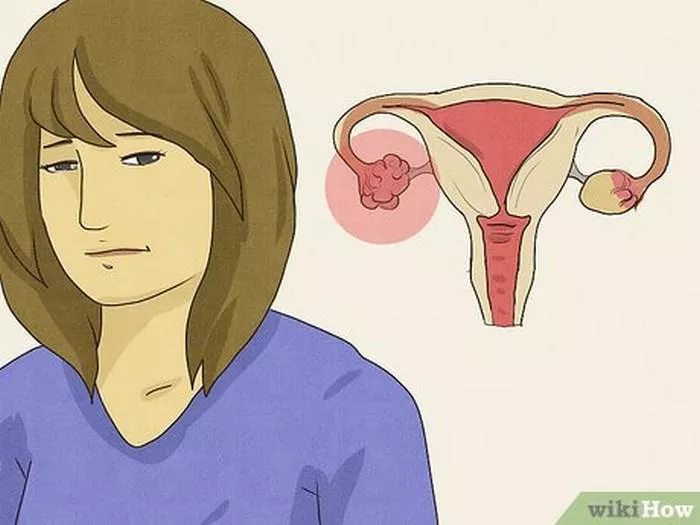Infertility is a problem faced by many couples, among which infectious infertility is a factor that cannot be ignored. Infectious infertility refers to female infertility caused by various infections. These infections may directly affect the reproductive system, leading to problems such as ovulation disorders, blocked fallopian tubes, thereby affecting female fertility. This article will explore in detail which infections can lead to female infertility, as well as how to prevent and treat these infectious infertility.
Bacterial Infections
Bacterial infections are one of the common factors leading to female infertility. Here are some common bacterial infections and their effects on female fertility:
Gonorrhea: Gonorrhea is a sexually transmitted disease caused by gonococcus. Gonorrhea infection can lead to complications such as cervicitis, salpingitis, etc., thereby affecting female fertility. Untreated gonorrhea infection may lead to infertility or ectopic pregnancy.
Chlamydia Infection: Chlamydia infection is a common sexually transmitted disease that can cause symptoms such as cervicitis, urethritis, etc. Chlamydia infection may affect female fertility, leading to infertility or ectopic pregnancy. Untreated chlamydia infection may lead to chronic pelvic inflammatory disease, further affecting female fertility.
Bacterial Vaginosis: Bacterial vaginosis is an infection caused by an imbalance of normal vaginal flora. This infection may cause symptoms such as increased vaginal discharge, odor, etc. Bacterial vaginosis may increase the risk of other reproductive system infections in women, thereby affecting fertility. Untreated bacterial vaginosis may lead to infertility or ectopic pregnancy.
Viral Infections
Viral infections are also common factors leading to female infertility. Here are some common viral infections and their effects on female fertility:
Human Immunodeficiency Virus (HIV): HIV infection can lead to immune system damage, making women more susceptible to other reproductive system infections. HIV infection may also cause ovarian dysfunction, affecting female fertility. Untreated HIV infection may lead to infertility or ectopic pregnancy.
Cytomegalovirus (CMV): CMV infection is a common viral infection that can be transmitted through saliva, urine, etc. CMV infection may cause ovarian dysfunction, affecting female fertility. Untreated CMV infection may lead to infertility or ectopic pregnancy.
Human Papillomavirus (HPV): HPV infection is a common viral infection that can be transmitted through sexual contact. HPV infection may cause diseases such as cervical cancer, thereby affecting female fertility. Untreated HPV infection may lead to infertility or ectopic pregnancy.
Fungal Infections
Fungal infections may also lead to female infertility. Here are some common fungal infections and their effects on female fertility:
Yeast Infection: Yeast infection is a common fungal infection that can cause symptoms such as vaginitis. Yeast infection may affect female fertility, leading to infertility or ectopic pregnancy. Untreated yeast infection may lead to chronic pelvic inflammatory disease, further affecting female fertility.
Aspergillosis Infection: Aspergillosis infection is a rare fungal infection that can cause symptoms such as lung infection. Aspergillosis infection may affect female fertility, leading to infertility or ectopic pregnancy. Untreated aspergillosis infection may lead to chronic pelvic inflammatory disease, further affecting female fertility.
Preventive Measures
For the above factors of infectious infertility, here are some preventive measures:
Maintain good personal hygiene habits: Regularly clean the external genitalia, avoid using irritating cleansers. At the same time, avoid wearing tight underwear to reduce the risk of infection.
Avoid risky sexual behaviors: Avoid having sexual intercourse with multiple partners to reduce the risk of sexually transmitted diseases. Using condoms can reduce the risk of infection.
Regular check-ups: Regular gynecological examinations to timely detect and treat reproductive system infections. For women with a history of infection, regular follow-up examinations are necessary.
Boost immunity: Maintain good lifestyle habits such as adequate sleep, balanced diet, and moderate exercise to improve immunity. At the same time, avoid excessive fatigue and excessive stress to reduce the risk of infection.
Prompt treatment of infections: Once infection symptoms are discovered, seek medical attention promptly and follow the doctor’s instructions for treatment. Avoid self-medication or delaying treatment to prevent worsening of the condition or complications.
Vaccination: For certain viral infections, such as HPV vaccine, vaccination can prevent infection and reduce the risk of infertility. Consult a doctor before getting vaccinated.























